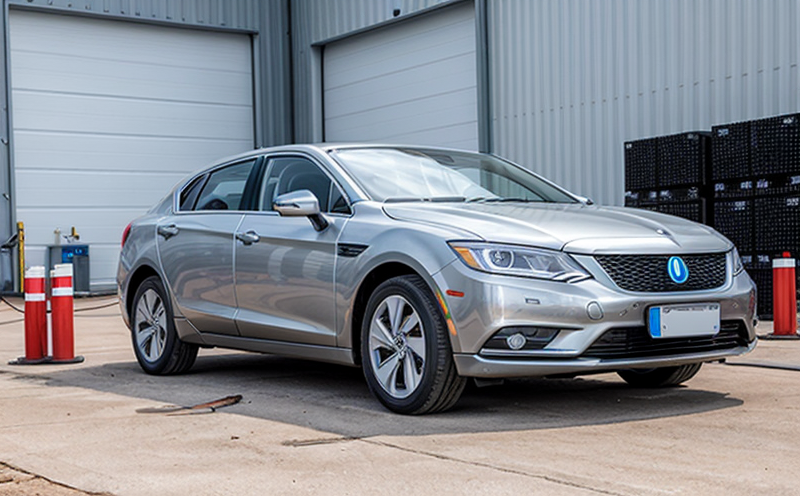SAE J2929 NiMH Safety and Abuse Testing for EV Systems
The SAE J2929 standard is a critical component in the development and certification of nickel-metal hydride (NiMH) batteries used in electric vehicle (EV) systems. This test ensures that NiMH batteries meet stringent safety requirements, mitigating risks associated with overcharging, short circuits, and mechanical abuse. The primary objective is to evaluate the battery's ability to withstand real-world conditions without compromising performance or causing hazardous situations.
The SAE J2929 standard encompasses several types of tests designed to simulate potential hazards that may occur during normal use and mishandling scenarios. These include thermal, mechanical, electrical, and abuse testing. Each test is conducted under controlled laboratory conditions to replicate the stresses encountered in the field.
Thermal abuse tests involve exposing the battery to high temperatures (up to 125°C) for extended periods or subjecting it to rapid temperature cycling. This simulates overheating situations that might occur during charging, storage, or environmental extremes. The test aims to assess whether the battery will remain stable and not exhibit dangerous behavior such as internal short circuits or thermal runaway.
Mechanical abuse tests replicate physical impacts a battery might face in transit or use. These can include drop tests from various heights onto different surfaces, compression testing, and puncture tests. The goal here is to determine if the battery can withstand such stresses without leaking electrolyte, catching fire, or causing other hazardous events.
Electrical abuse tests focus on overcharging scenarios where the battery receives more charge than it should. This could happen due to a malfunction in the charging system or user error. The test checks for signs of damage like swelling, leakage, or thermal issues that indicate potential safety risks.
The SAE J2929 standard also includes specific criteria for battery design and construction. These include requirements for cell structure, separator materials, electrolyte composition, and packaging integrity. By adhering to these specifications, manufacturers can ensure their NiMH batteries are safe for use in EV systems.
In summary, SAE J2929 provides a comprehensive framework for ensuring the safety of NiMH batteries used in electric vehicle applications. It helps manufacturers identify weak points early in the development process and implement necessary improvements before commercial release.
Applied Standards
- SAE J2929:2018 - Safety and Abuse Testing for Nickel-Metal Hydride (NiMH) Batteries Used in Electric Vehicle Systems
- ISO 6358:2017 - Determination of the Rate of Heat Release by Means of a Cone Calorimeter Test
The SAE J2929 standard is widely recognized and adopted for its rigorous approach to evaluating battery safety. It integrates multiple international standards like ISO 6358, which measures heat release rates during combustion tests.
Eurolab Advantages
- State-of-the-Art Equipment: Our laboratory is equipped with advanced testing machines that comply fully with SAE J2929 and other relevant standards.
- Expertise in Battery Testing: With years of experience, our team has the knowledge to provide accurate results and actionable insights.
- Comprehensive Reporting: We offer detailed reports including test protocols, observed phenomena, and recommendations for improvement.
Why Choose This Test
- Enhanced Safety: Ensures that NiMH batteries meet the highest safety standards, protecting users and reducing liability risks.
- Comprehensive Coverage: Tests simulate real-world conditions, providing a holistic view of potential hazards.





